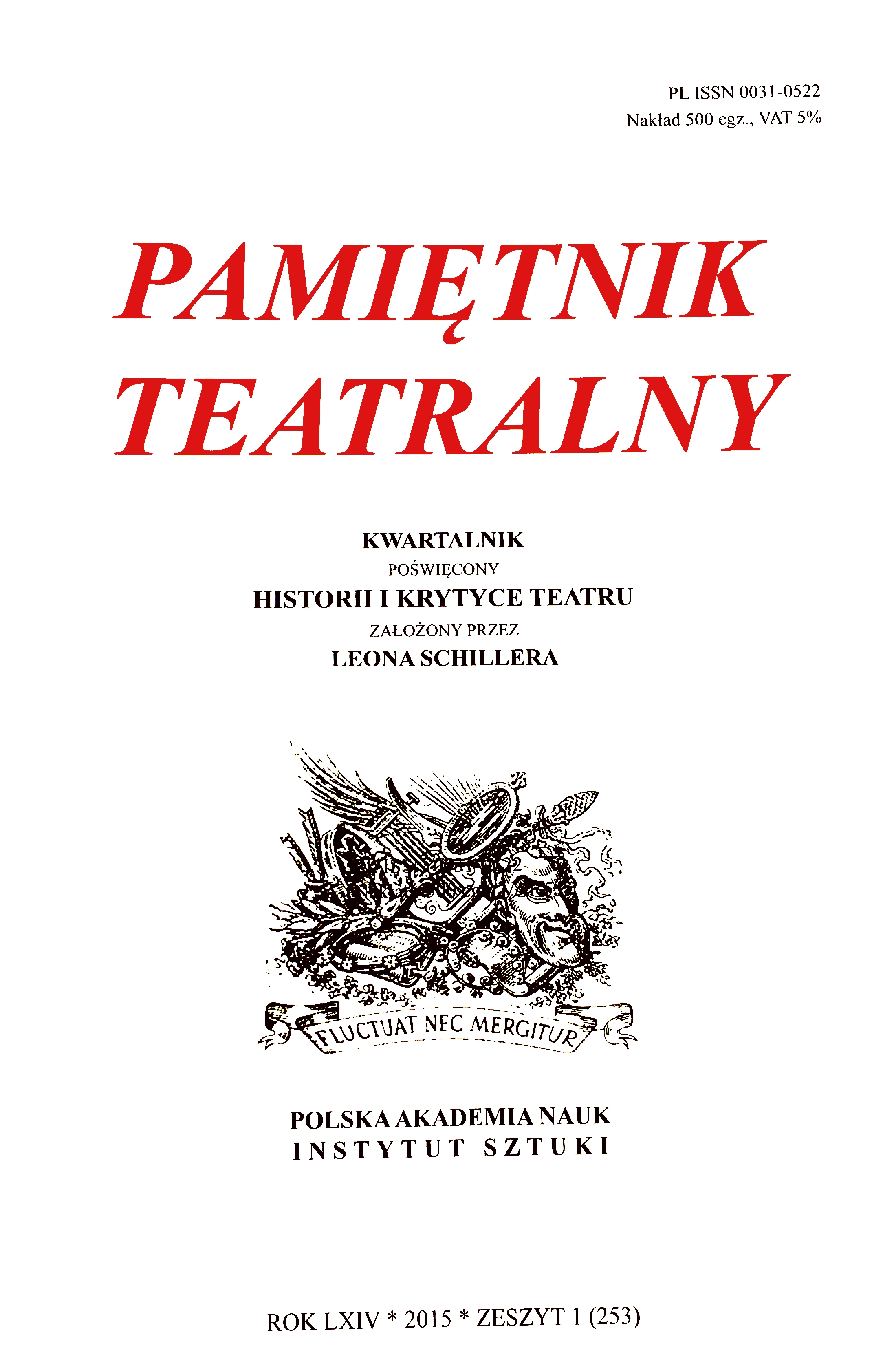Media, teatr i ponowoczesność – w kręgu natrętnych powinowactw
The Media, Theatre, and Postmodernity – in the Circle of Obsessive Affinities
Author(s): Rafał MaciągSubject(s): Theatre, Dance, Performing Arts, Sociology of Art
Published by: Instytut Sztuki Polskiej Akademii Nauk
Keywords: thearte studies;theatre theory;media studies;postmodernity;
Summary/Abstract: Postmodernity, theatre and the media of the 1960s and 1970s underwent a process of intense shaping of their mission and self-awareness, although in each case it expressed itself differently. Postmodernity emerged as a philosophical, historiosophical and social project. The theatre perceived itself in the whole richness of its potential: as an agent of social change, a sacred institution, a tool of research (in anthropology, for example), etc. The media acquired a new dimension, i.e., their participation in general cultural and social processes, which up to that point had not been so obvious. Comparison of these three areas requires a proper ground, which can be afforded by a kind of discourse that does not decide facts, but – to put it in a slightly oversimplified way – is only based on ways of discussing them; at this level, problems (of ontological compatibility, for example) cease to be an issue. Such discourse has emerged within the framework of post-modernism and deals with two most significant themes: the social conditions (figuratively: power) and epistemology (knowledge). Both of these themes pick out the circumstances in which the media and theatre have been developing; for the theatre, knowledge appears initially as its foremost ambition, but it soon gives way to power and becomes trivial, which I describe ironically by referring to Jame-son as a paradoxical commentator of Lehmann. The latter rather inadvertently agreed with Jameson in his materialistic interpretation of art (there is more of such muddling “parallels”, but that only makes the riddle more interesting) describing how the theatre took on the role of an active participant in world processes. Such participation, however, was tantamount to rejec-tion of refined reflexion possible in theatre. (Theatre showed this refinement and, concurrent-ly, omnipotence upon the emergence of postmodernity). Due to its activism, the theatre has moved onto the field of social issues and, what is worse, entangled itself in the trivial reality of materialistic existence. The media, on the other hand, have opposite status. Awakening in the 1960s and 1970s as participants of varied social and cultural processes, they have gradually become a reason for, an instrument of, and a place for increasingly generalised reflexion that reaches the level of epistemology, i.e., it methodically poses questions about the modes and ways of speaking about the world, and by doing so gains novel insights into key areas of epistemologi-cal discourse tackled from various theoretical perspectives. Postmodernism or its effects play an important part in this process. In a way, theatre and the media have switched their places in the historical process of consuming the postmodern legacy; as a result, they approach post-modern themes from different angles and to different effect.
Journal: Pamiętnik Teatralny
- Issue Year: 253/2015
- Issue No: 1
- Page Range: 48-61
- Page Count: 14
- Language: Polish

